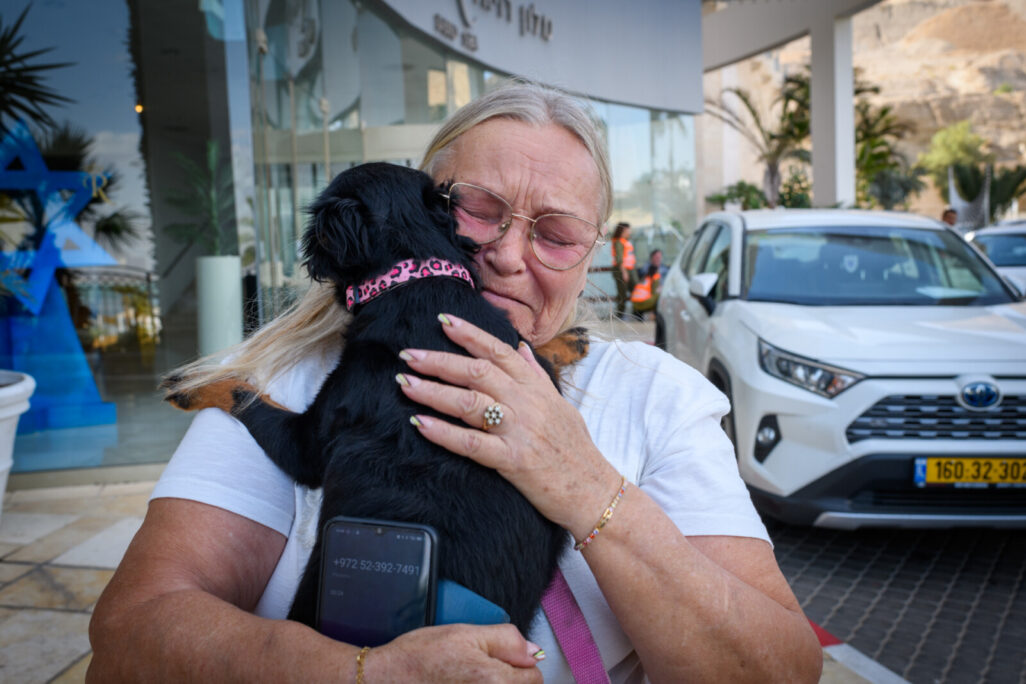
Luna arrived, scared and confused, at the “Mechaltzim v’ Nehenim” (Rescue and Enjoy) center in Kibbutz Beit Kama after her owner, Natalie Abramov, had to leave her behind in Sderot on the orders of the soldiers who rescued her from her home. Luna is a Russian Toy poodle who was adopted by Abramov ten years ago.
A few days ago, volunteers sent by Abramov came to rescue her, but Luna ran out when they opened the door. Since then, she has been wandering the neighborhood alone, searching for her owner.
"Reuniting the animals with their owners is our goal," said Yoav Ben-David, 32, from Kibbutz Ma'ayan Baruch. Ben-David is one of the founders of Mechaltzim v’Nehenim, an organization that rescues pets and returns them to their owners.
Ben-David says that last week, they rescued 250 dogs, cats, parrots and hamsters from the fighting zones in the south. He told his own dog on the first day of the war that he was going to help others, and entrusted him to his parents.
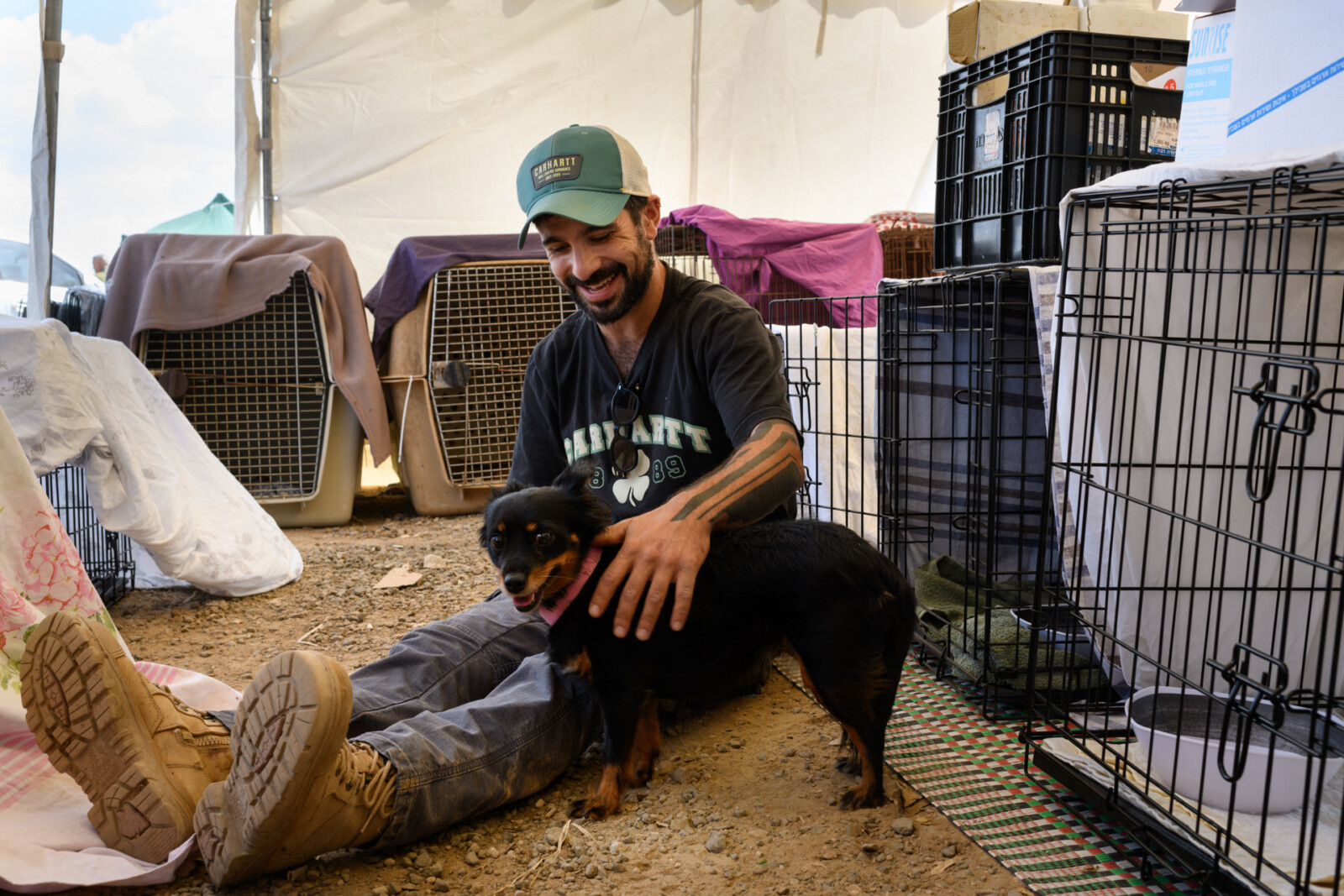
The makeshift rescue center in Beit Kama is full to the brim: dozens of volunteers from the "Brothers in Arms" organization, soldiers who came for a cookout, a carful of Hasidic spiritualists followers there to boost morale, Thai workers rescued from Kibbuts Zikim, and dogs that were rescued from the Gaza Envelope, exhausted and waiting for their owners to come pick them up. The rescuers' tent is packed with cages, food donations, and volunteers preparing for their next rescue.
In a cage nearby are two sleeping dogs, whose names no one knows. Yuval and her father Itai, residents of the kibbutz, sit next to them and assure passersby that the dogs have been eating and drinking.
"They came from Kibbutz Ein HaShlosha (in the Gaza Envelope) to Kibbutz Sa'ar – they ran away from the booms," said Itai, who participated in the rescue of animals in Kibbutz Kfar Aza.
"We managed to get parrots, a cat and two more dogs out, and there were two more that we couldn't catch," he said. "We stayed on the sidewalks – there was an unbearable smell of death in the air."
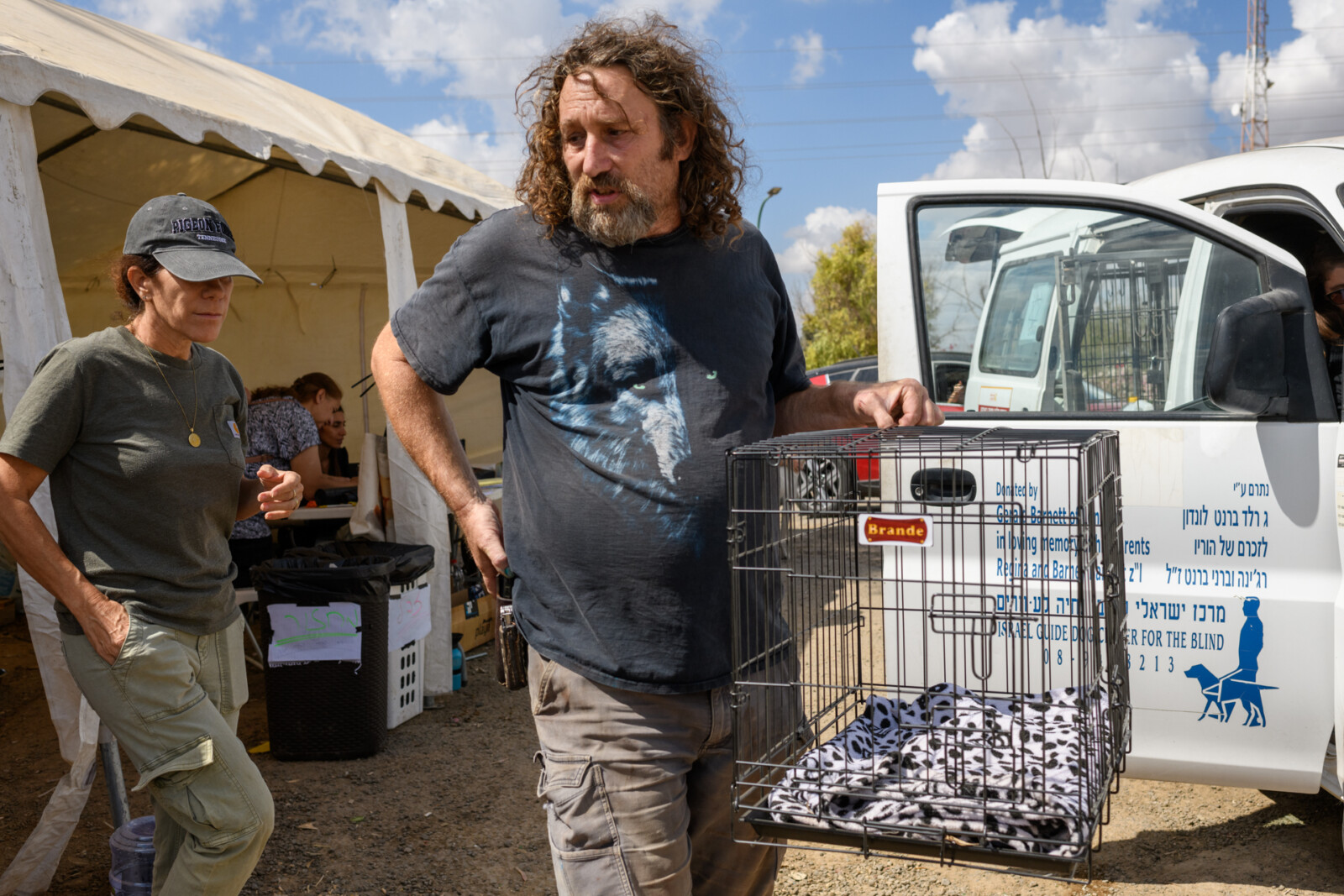
Itai's partner is in the reserves, so he has been spending a lot of time with his young daughter in recent days. This raises many questions.
"Yuval asked me what I would have done with our dog had we been in that situation," Itai said. "I answered that I would treat her like a family member – but it’s hard to know what I would do in real time."
"There were a few dogs that were injured and all of them are being treated," Ben-David said. "Some have already been reported, and some have already been put up for adoption. We haven’t encountered any serious injuries, but unfortunately I believe they exist. Since this morning, I’ve been receiving calls from soldiers who have dogs, so we plan to stay here as long as possible."
At the rescue center, there are veterinary nurses, owners of treatment centers, activists, dog lovers, professionals and trainers. There is no shortage of food. If you need special items, they arrive immediately.
"If we need special cat food, it arrives in 20 minutes," Ben David said excitedly. "There are crazy people from all over the country, from Eilat to Kiryat Shmona – and it's fun."
Lt. Col. Uri Ariel from Ramat Gan came to volunteer with the dogs. He walks a white Canaan dog, who looks exhausted and dirty, at the entrance to the kibbutz.
"On Sunday I went to Kibbutz Be’eri, an area I know as a cyclist," he said. "They let me in because of my rank. They gave me a dog they found and I connected it to a family. They asked me to go to Ashkelon to rescue five more dogs that were left behind.
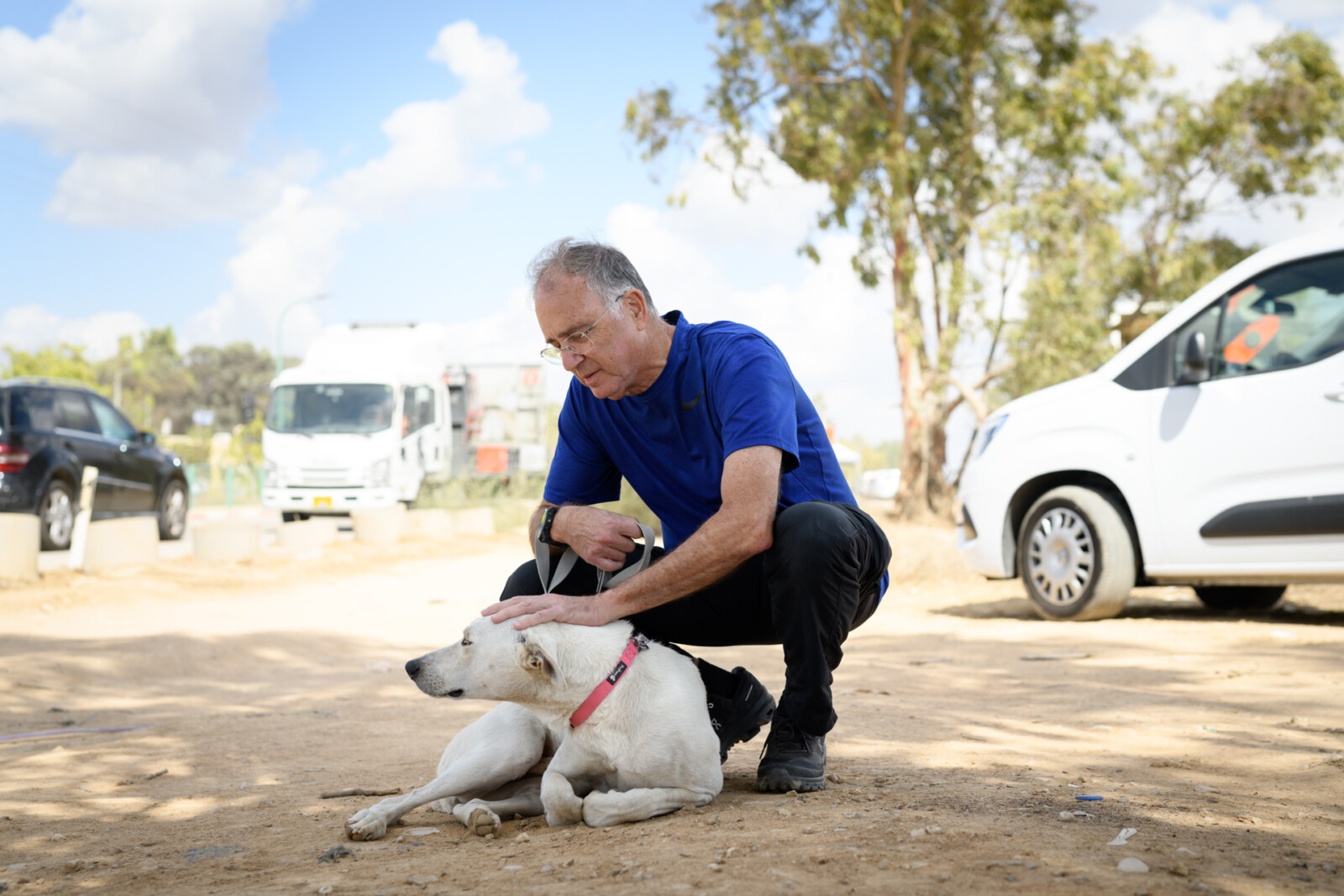
"A day later, I rescued a dog from Moshav Yoshivia and brought it to its owner, a woman from Ma'ale Adumim. She was very excited, but the dog was still in shock," Ariel continued. “The next day, I went in with a team – someone who knows Be’eri and two soldiers. We searched in targeted places with a picture of a dog, but unfortunately we couldn't find it. Today I thought to come here, to do what I can."
Ben-David says that the rescuers operate only with approval and coordination with the security forces, and in cooperation with nonprofits. What’s most important to him is ensuring the safety of everyone involved.
"As soon as we received instructions not to enter [a site], our teams did not enter. No matter how much we want to be commandos – our safety comes first," he said, adding that there are also therapists on call if a rescuer needs it.
On the first day of the war, the rescuers posted on Facebook with their numbers for anyone who needed help rescuing their pets.
"Many calls came in very quickly, both for rescues and to volunteer," Ben-David said. "We were in Sderot, Ein HaBsor, Kfar Aza, Be’eri and many other communities."
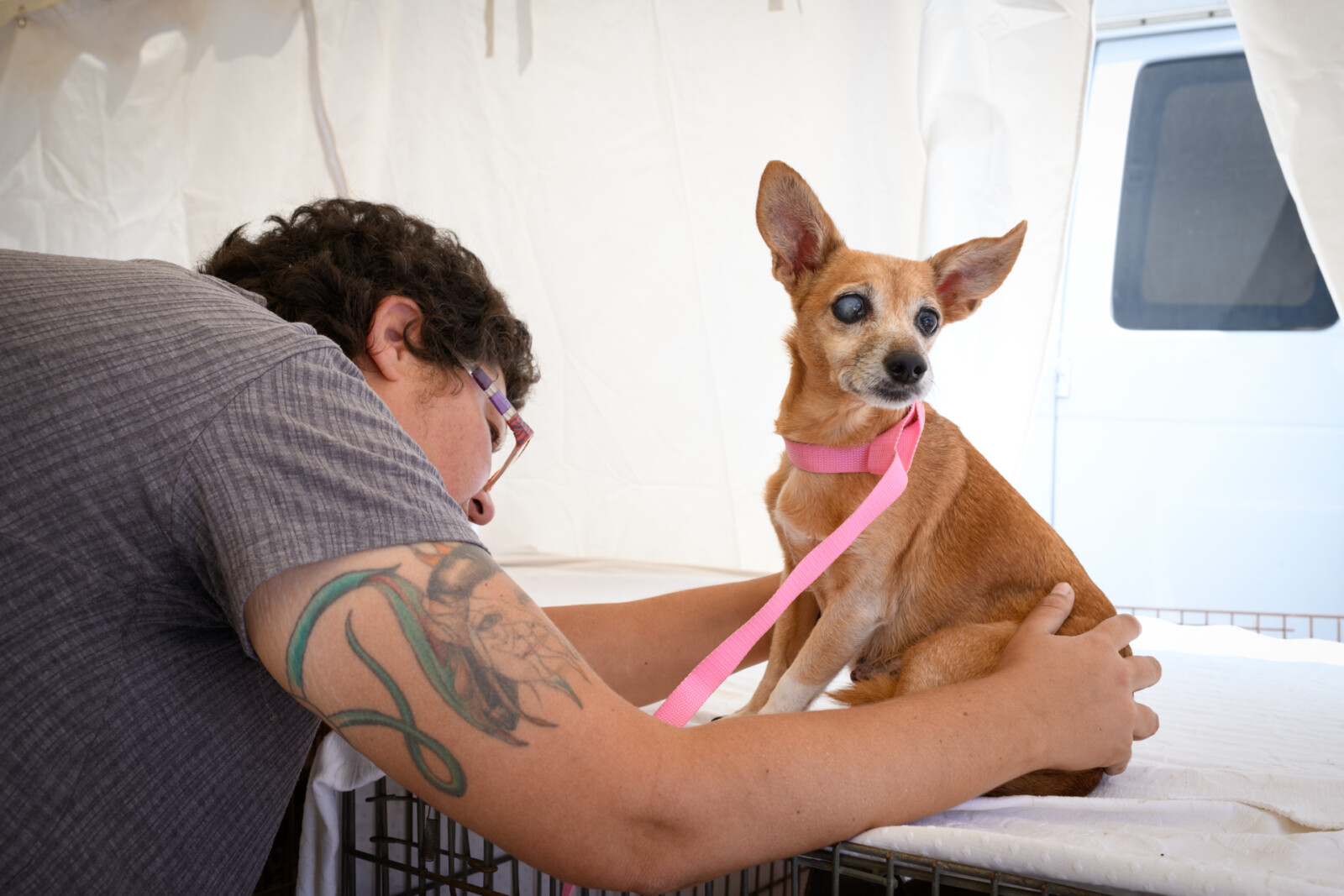
On the second day of the war, a larger team assembled in Sderot, but the security forces did not allow them to operate there. They decided to set up the rescue center in Beit Kama, Ben-David explained.
"Donations came in rapidly – food, supplies and medical equipment," he said. "Veterinarians from all over the country came to help."
Orli volunteered to drive Luna to Abramov, who is staying in a hotel on the Dead Sea, like many displaced residents of Sderot. This is not her first rescue. On Friday, she brought Cashew, a pug dog, to his owner – an elderly woman from Sderot.
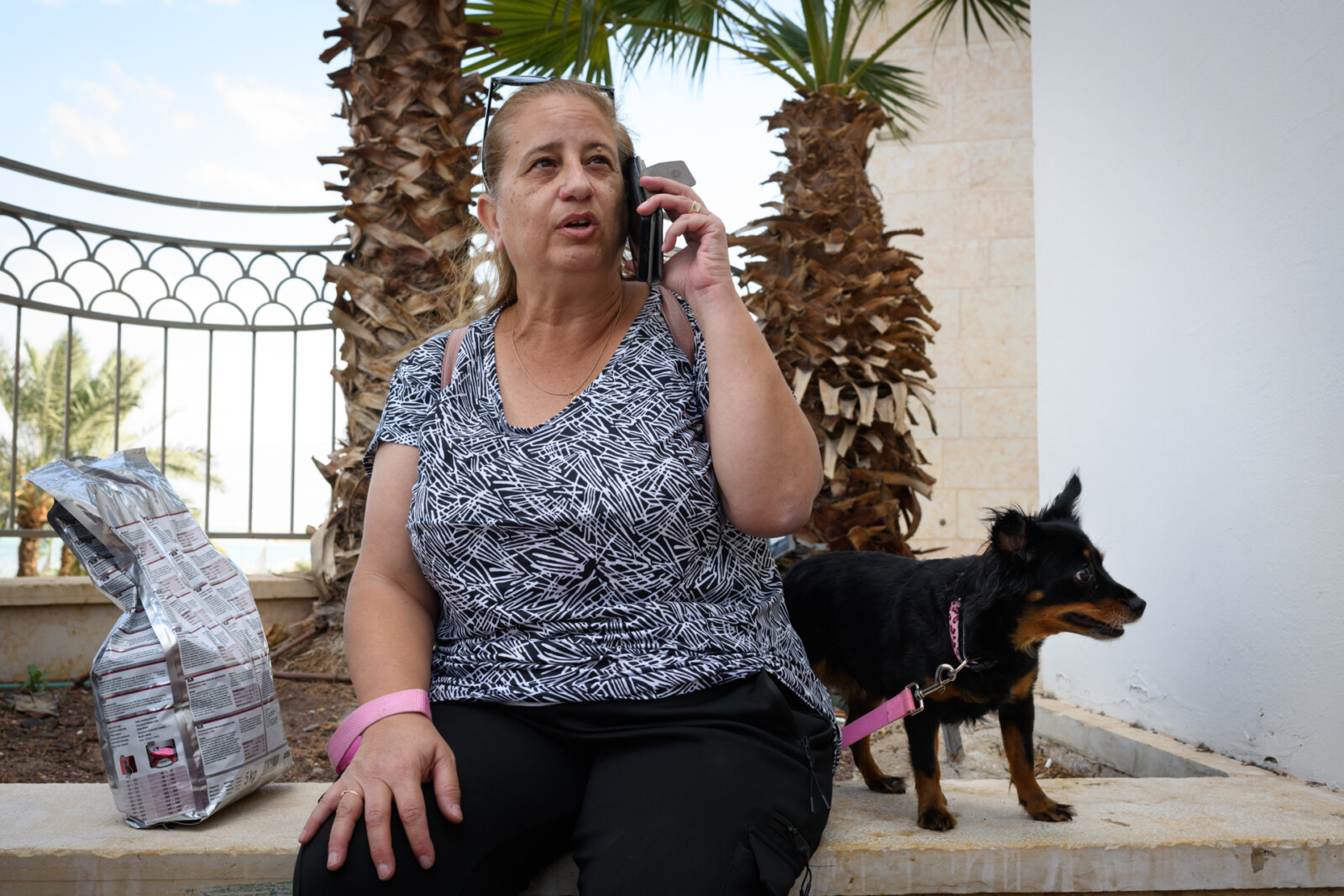
When Abramov came out of the hotel to meet Orli and Luna, she dropped her walking stick in excitement. She cried and hugged little Luna, whose tail was wagging non-stop.
Abramov immigrated to Israel from Russia 33 years ago. She has three children: her son and grandchildren are with her in the hotel, and her daughter stayed in Sderot, since she has a large dog that is not allowed in the hotel. Orli reassured her that Luna has been eating and drinking, and has been checked by a vet.
"She doesn't like to eat alone, so I was terribly worried – that's why I didn't want to evacuate,” Abramov said. "She’s like my child. Every night I have a dream that she died, that a rocket destroyed the house."
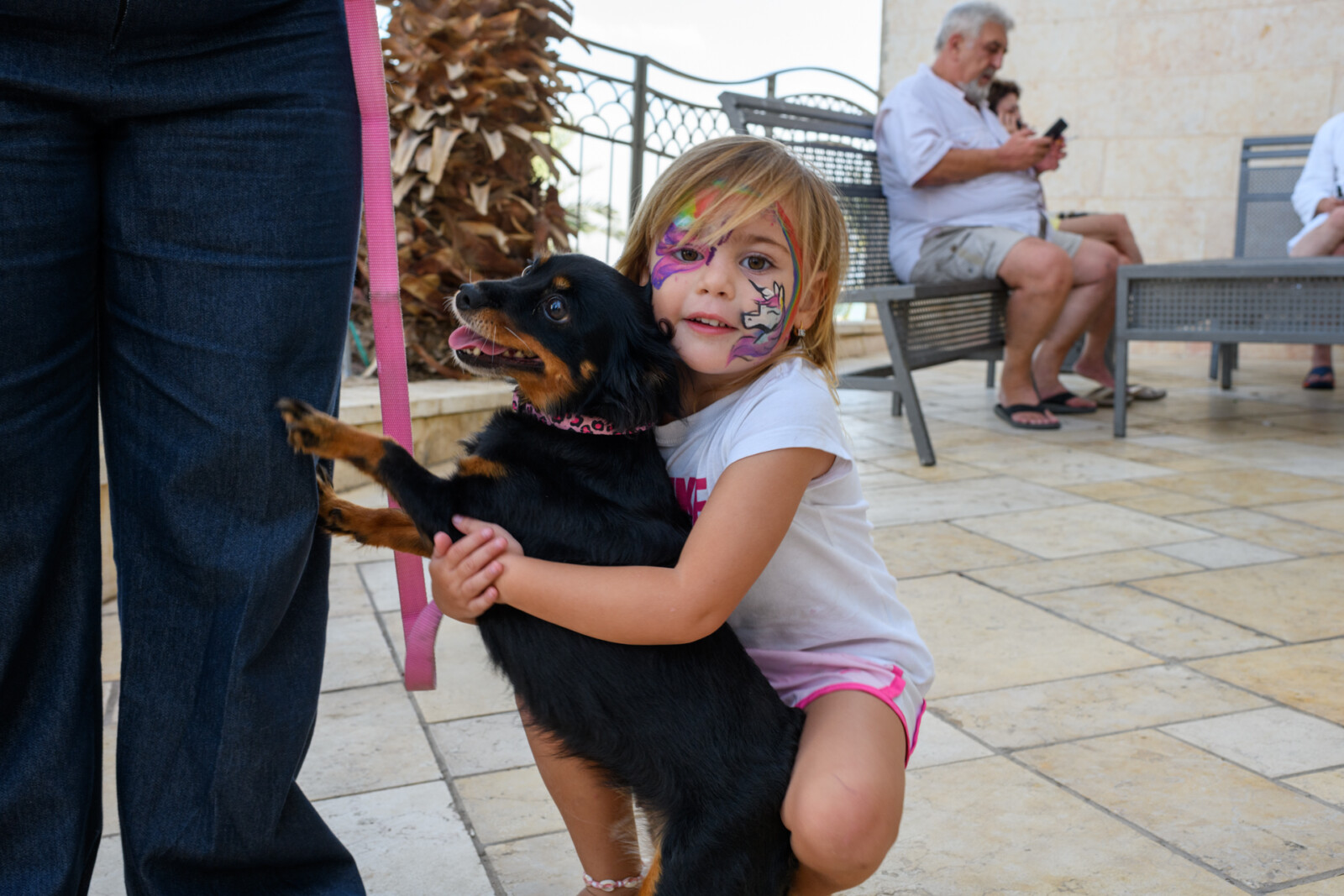
"It's emotional to see the excitement of the children who reunite with their dogs," Ben-David said. "People say that the dog is what they have left of their family. It's like you've added a family member and brought him back home. The happiest feeling."
This article was translated from Hebrew by Lily Sieradzki.






